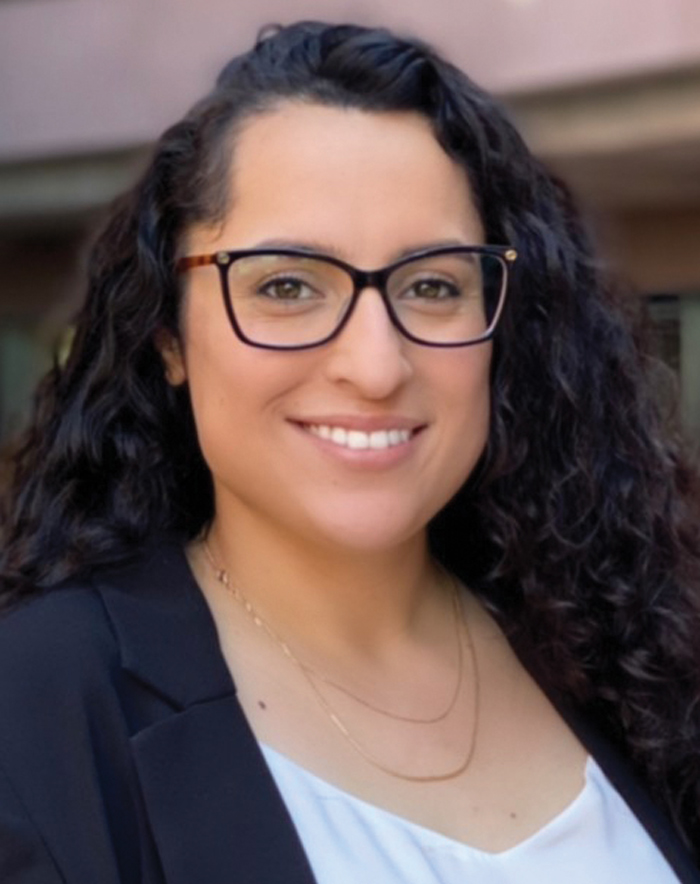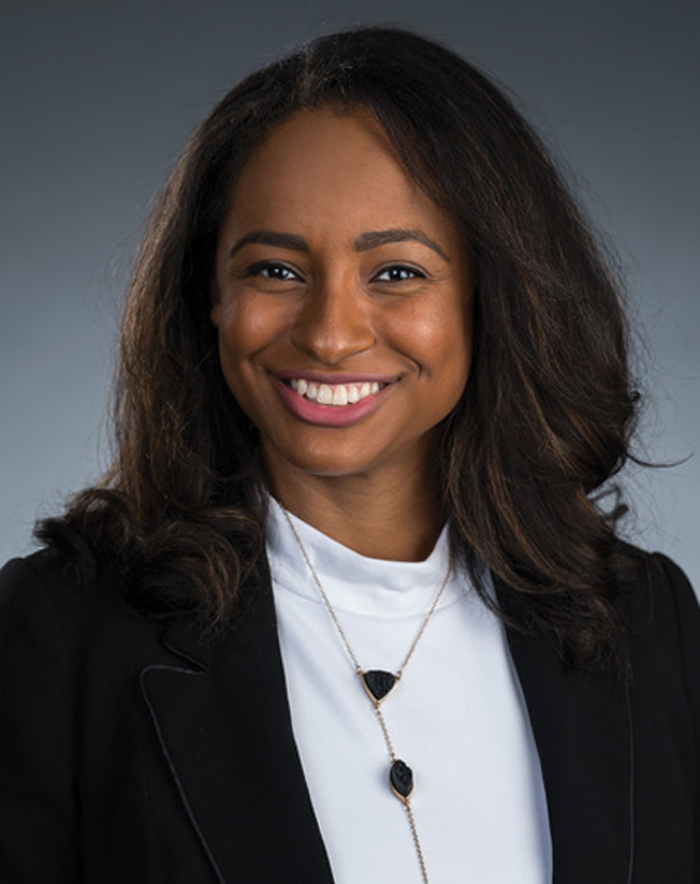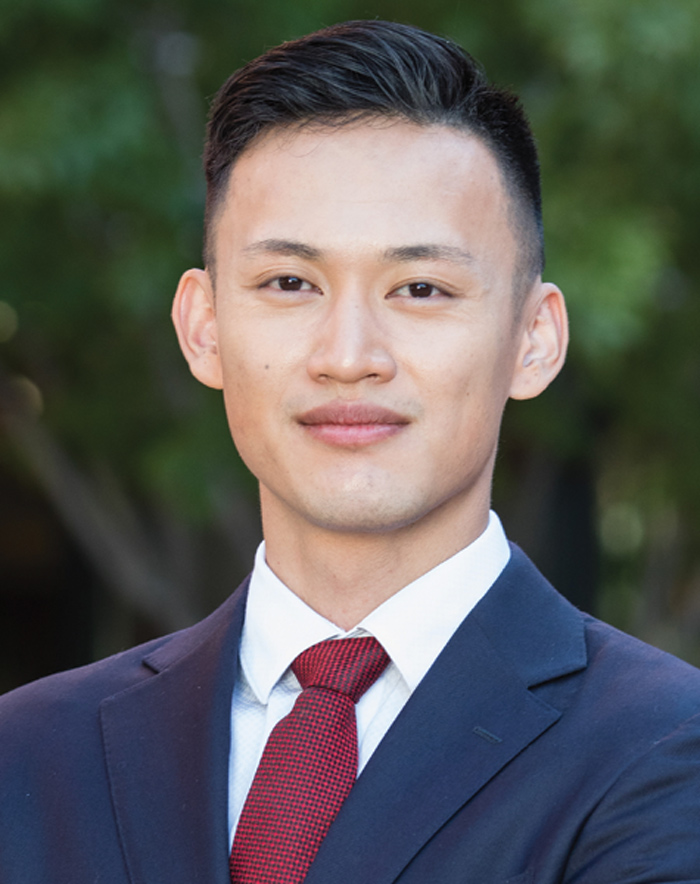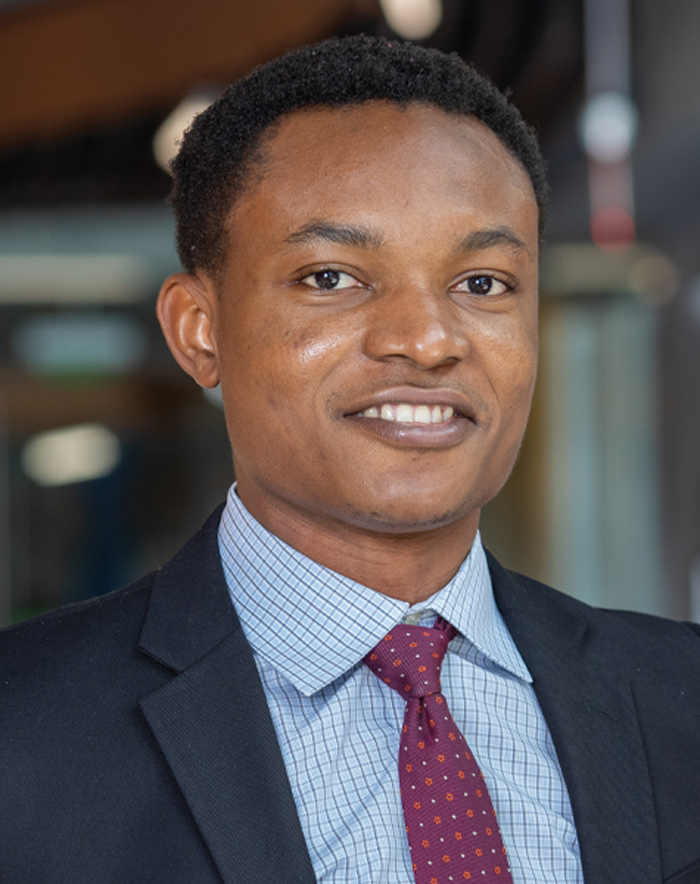ALL THINGS WPC
Inclusion at W. P. Carey: Full-time MBA students share their perspectives
Community Engagement
t a recent school event, student panelists Chikezie Anachu, Monica Loza, Tamara Kelson-Norris, and Pitu Sim discussed what diversity, equity, and inclusion (DEI) means to them as they navigate their Full-time MBA experience.
The students have frequent conversations, in both their classes and the various on-campus organizations they lead, on how to enhance DEI efforts at W. P. Carey and beyond. “My conversations with Pitu, Chike, and Tamara have empowered me to step into a leadership role that I wouldn’t have otherwise taken on,” says Loza, who serves as vice president of DEI for the MBA Association at ASU.

Each student has stories about the experiences that led them into leadership positions within ASU. “I looked at my life and saw that it may have been different than someone who doesn’t come from a Hispanic background or isn’t a woman,” says Loza. “I went through the education system, noted the discrepancies, and dreamed about how I could make it better for those who follow in my footsteps.”
ALUM President Kelson-Norris says younger generations are more willing to speak up, “have difficult conversations, and keep the positive momentum and social change going.”

“I’ve always been an advocate for diversity and inclusion because of my adolescence,” he remembers. “I experienced pressure to excel in certain subjects because of how I look — a lot of times that perception was misguided. I am from a workingclass background and I’ve experienced and witnessed how socioeconomic factors can really affect one’s ability to progress in society.
“I want to champion overcoming these various obstacles and barriers,” adds Sim. “I hope to continue helping those in a position similar to mine achieve greater access to various opportunities.”

These events give students the chance to be understood. “People here are willing to talk about how we can improve opportunities for underrepresented minorities or diversity within our faculty,” he says. “We’re even having conversations around adding curriculum content that embodies diversity and addresses questions around DEI.”
Another goal shared by the students is creating student ambassadors who participate in community outreach to advance inclusivity within the community. “Developing champions for diversity could be one of the greatest benefits to society,” says Anachu.

Anachu says the importance of diversity, equity, and inclusion will continue to grow. “America is on track to be a minority-majority country in the next 20 years, so there’s a big conversation around the workforce of the future. Organizations now have to show how they plan to be inclusive.”
“Companies and organizations that embrace DEI perform better because they attract the right talent and create a culture that leans into diversity,” explains Sim.
Learn more about DEI initiatives at W. P. Carey and ASU: wpcarey.asu.edu/dei
